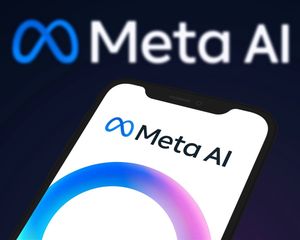A Media Snippet accompanying this announcement is available by clicking on the image or link below:
NEW YORK, Oct. 10, 2022 (GLOBE NEWSWIRE) -- Amid the rise of “quiet quitting” and with questions on how business owners and HR leaders should react, iStock, a leading e-commerce platform providing premium content to SMBs, SMEs, creatives, and students everywhere, has released research revealing new attitudes that have impacted how life in the workplace is being visualized in advertising and media and the wider effect it can have on younger employees engagement. Data indicates that one out of three Gen Z and Millennials globally (41%) are more focused on having a better work/life balance than on attaining job security (29%).
The findings reported for iStock’s visual research platform, VisualGPS, indicate the younger generations are reconsidering and redefining “success” to be more inclusive of their overall well-being, with 54% strongly believing that a successful life is one in which their physical, mental, and emotional needs are being met.
This research seems to align with the “quiet quitting” generational divide effect demonstrated by a recent YouGov survey. This revealed 82% of adults surveyed, 65 years and older believe that employees should always go above and beyond at work, while only half of the younger adults between 18 to 29 agreed. Furthermore, this same group of young adults (65%) believes employees should do exactly what they're paid for – not more, not less. Most of the older adults (72%) didn’t relate to not going the extra mile.
VisualGPS research also found that among all generations, Gen Z and Millennials are the most eager to achieve job/career success (40%) and are prioritizing their financial security (55%) above all else. This data suggests they don’t wish to detach completely from their working lives. Also, 48% consider that it is important to them to have a job/career they are passionate about and 40% feel motivated about finding financial success.
“We observed that pre-pandemic the classic way to balance work and self was to leave the office. Now, younger generations are working at home and are struggling with defining their own work-life balance,” said Dr. Rebecca Swift, Global Head of Creative Insights at iStock. “Our VisualGPS research tells us that quiet quitting, most popular among Gen Z and Millennials, is a way for younger workers to reconfigure old ways of work learnt to shape new ones; ways that help them reconcile with their mental and physical health in this new working environment.”
For business owners or HR and internal communications leads looking to promote new policies showing their commitment to younger employees around their well-being, Dr. Rebecca Swift shared three takeaways:
Prioritize Peace of Mind
Gen Z and Millennials take mental health seriously, so visuals showing what young people do to gain peace of mind will resonate with them. Our Visual GPS research revealed that contrary to popular belief, in fact, Gen Z and Millennials (53%) are more likely than Baby Boomers (41%) to find it hard to keep up with the pace of today’s world. While all generations agree that people should talk about mental health, younger generations are more likely than Baby Boomers to tackle their problems independently, through stress management techniques or meditation.
Well-Being Looks Different for Everyone
The younger generations at the helm of the “creative class” are twice as likely to learn a new skill or engage in artistic activities like crafting, painting, and photography, rather than only practice relaxation exercises. This is an opportunity to connect with younger employees by celebrating the ways they prefer to improve their mental health, using images and videos showing them doing activities that push them to “slow down”.
Dose Technology
Our VisualGPS research revealed 7 out 10 of Gen X and Baby Boomers consumers say technology helps them feel connected to others. This situation is inverted for Gen Z and Millennials — nearly half blame social media for making their relationships worse. This means younger generations are relying less on technology to feel connected to the world, 40% perceive social media’s main benefit is that it keeps them entertained. It’s more likely that your younger employees will resonate with visuals that show the power of technology to assist or improve their daily life in ways that also allowed them to switch off their brains from work. Choose images and videos that show the right balance between relying on technology, but don’t forget that, sometimes, young people use technology to unplug, too.
To find imagery and videos that better visualize well-being and workplace mental health, go to https://www.istockphoto.com/
Media Contact:
Ilse Noguez
ilse.noguez@gettyimages.com







